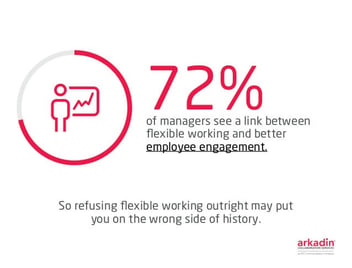Five tricky CV questions
We regularly get asked what makes a good CV. It’s why we run our free Member workshops packed with CV tips including how to tackle any difficulties you may have. Here we explore some of the trickier questions we’re often asked…
1. Do I need to say why I left a company on my CV?
No. These sort of questions are usually answered at interview. Your CV is first and foremost your opportunity to show off where you’ve worked up until now. Space is always limited and it may be hard to capture the real essence of why you left an organisation within a few words.
However, if you’ve been headhunted for every job you’ve ever had, put it in. The rule is, if it looks good, shout about it. You don’t have to put that you were made redundant or if your job is unpaid either. You don’t even have to state if you were part-time staff.
The only exception is if you’ve had lots of short bursts of employment (and you’re not a freelancer) – in this case adding ‘reason for leaving’ can reassure a prospective employer your not flighty.
2. Do I need to include my date of birth?
It’s not a legal requirement to put your age on your CV. In fact, some people like to leave this out altogether. However, if a company is going to be ageist – which is totally illegal, not to mention unfair, but sadly does still happen – it’s probably best that you find out sooner rather than later. You don’t need to put your date of birth in the opening information details, you can add it at the end of your CV if you prefer.
3. How many past roles do I need to include?
If you’ve had a lot of positions and are finding it hard to keep your CV limited to two pages, you can focus on your last few roles. We say it’s best to ideally flesh out your last three roles with bullet points of your main achievements while you were there. You could always include jobs before that with just the dates, company and job title. This is also ideal if you have been contracting or temping and have accumulated several different roles.
4. I’ve got some gaps, what should I do about those?
Any gaps in dates will raise questions, so it’s best to avoid them. However, if you’ve had a recent career break or took time out for a sabbatical or for maternity leave, it’s best to state this. Employers don’t like question marks, so if you can give them as much information as possible, your CV is more likely to stay in the ‘hire me’ pile.
5. I want to go in a new direction but I’m being pigeonholed by my last position. What can I do about this?
If you’re seeking a change in role or industry, a skills-based CV can be a good place to start. Ideally you want to appear to match the role you’re applying for, so look at the language in the job advertisement and aim to mirror this when pulling out key skills you’ve gained.
All we would say is, these tend to be less common, so that could work for you or against you, depending on the job you’re applying for. It might be worth getting relevant work experience in the sector first if you can.
If you’d like to find a new role, register to receive our job alerts today. Or if you’d like to find part-time staff or flexible professionals for your business, we’d love to hear from you. Get in touch today.

 Back to resources
Back to resources 3 min read
3 min read




